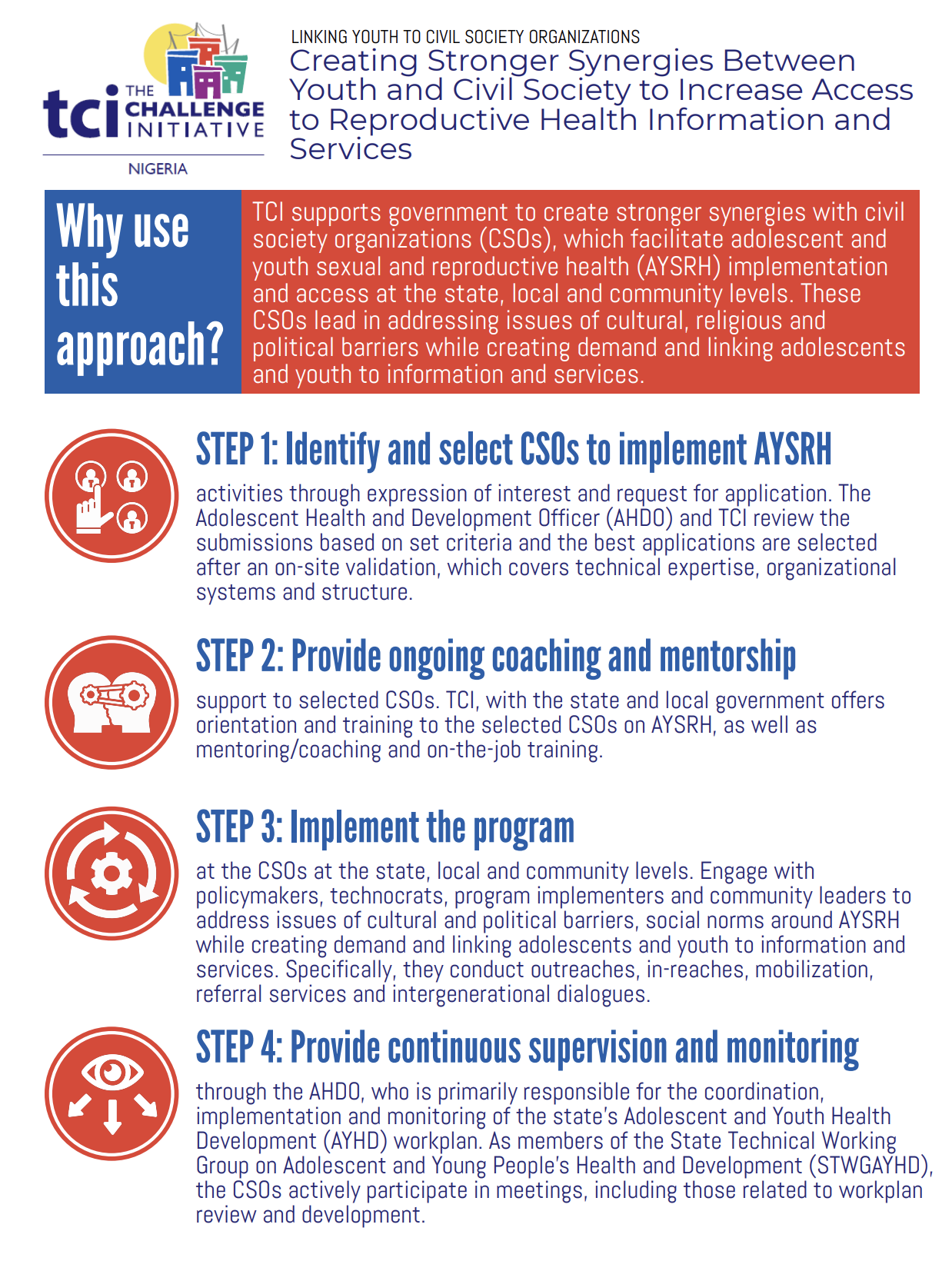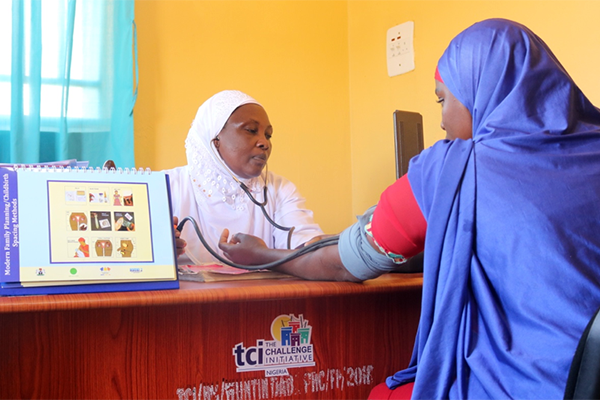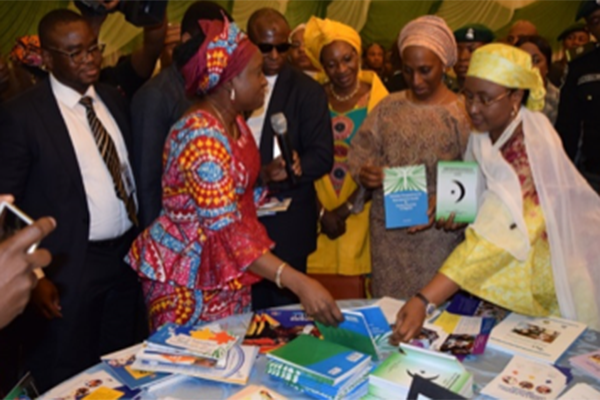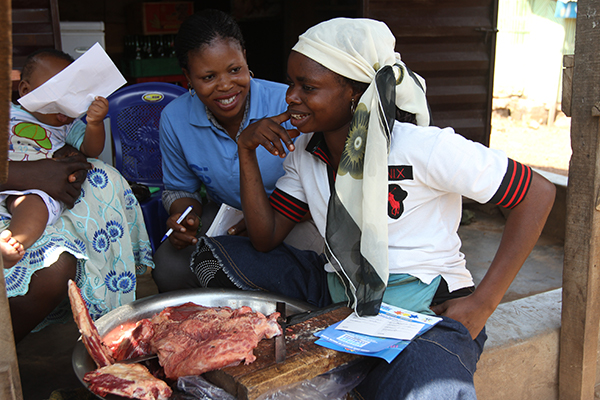Nigeria Toolkit: AYSRH Demand Generation
- Home
- Help and Support
- Close
- Toolkits
- Global Toolkit
- AYSRH Toolkit
- Hub Toolkits
- Core High-Impact Practices
- Gender Essentials Mini Course
- Close
- Resource Collection
- Community of Practice
- Coaching
- Log In/Register
- My Profile
- English
Linking Youth to Reproductive Health Information & Services Through Civil Society Organizations
What is it?
TCI supports state structures to improve quality adolescent and youth sexual reproductive health (AYSRH) service delivery, while at the same time increasing demand for those services and resources to ensure smooth operations. As part of this process, during TCI’s net-mapping exercise and study tour, it was evident across all TCI-supported states that civil society organizations (CSOs) facilitate AYSRH implementation at the state, local and community levels. These CSOs lead in addressing issues of cultural, religious and political barriers while creating demand and linking adolescents and youth to information and services.
To address AYSRH information and service needs, TCI is supporting government to create stronger synergies and connections with CSOs to increase youth’s access to reproductive health information and services. To overcome barriers at the community level, TCI and states recognized that youth-focused CSOs, specifically community-based organizations (CBOs) and faith-based organizations (FBOs) are often already trusted institutions in the community, providing various services to youth, including family planning, HIV/AIDS and life skills.
Why is this important?
Before the introduction of this approach, there were no synergies between CSOs and state government for family planning or AYSRH programming, although it existed in the HIV/AID programming space. CSOs would receive their own funding and just work to implement their planned family planning or AYSRH activities, accountable to a donor but not requiring coordination or meaningful engagement with the state government. As a result, this approach strengthens the community’s AYSRH response and amplifies the impact of the state government’s AYSRH program.
What are the steps to implement this approach?
Step 1: Identify and select CSOs to implement AYRH activities
TCI supports states to identify CSOs working in the AYSRH space through expression of interest and request for application.
The AHDO along with TCI review the expressions of interest. Qualified CBOs and FBOs then submit request for application (RFA). The RFAs are reviewed based on set criteria and the best applications are selected after an on-site validation. The selection and validation cover technical expertise, organizational systems and structure.
Step 2: Provide ongoing coaching and mentorship support to selected CSOs
TCI with the state and local government through the government representative offers orientation and training to the selected CBOs/FBOs on AYRH as well as mentoring/coaching and on-the job training. Tools such as frequently asked questions, minimum package of services, information leaflet and job aids are also provided to enhance implementation and quality of services off by the CBOs/FBOs.
Step 3: Program Implementation
CBOs/FBOs facilitate implementation at the state, local and community levels, they engage with policymakers, technocrats, program implementer and community leaders to address issues of cultural and political barriers, address social norms around AYRH while creating demand and linking adolescents and youth to information and services. Specifically, they carry out outreaches, in-reaches, mobilization, referral services and intergenerational dialogues, among others.
The selected CBOs carry out outreach events and mobilize youth for in-reaches. They provide counseling on contraceptive methods and “Go Cards” for referrals to quality service delivery sites.
Step 4: Continuous supervision and monitoring
In each state, the AHDO is primarily responsible for the coordination, implementation and monitoring of the state’s Adolescent and Youth Health Development (AYHD) workplan. Hence, CBOs/FBOs share progress reports with AHDO. As members of the State Technical Working Group on Adolescent and Young People’s Health and Development (STWGAYHD), the CBOs/FBOs actively participate in meetings, including meetings related to workplan review and development.
TCI APP USERS PLEASE NOTE
You will only receive CERTIFICATES by email – when earning a score above 80% – and will not be able to view or print a certificate PDF from the TCI app.
Test Your Knowledge
Earn a Certificate
Quiz Summary
0 of 4 Questions completed
Questions:
Information
You have already completed the quiz before. Hence you can not start it again.
Quiz is loading…
You must sign in or sign up to start the quiz.
You must first complete the following:
Results
Results
0 of 4 Questions answered correctly
Your time:
Time has elapsed
You have reached 0 of 0 point(s), (0)
Earned Point(s): 0 of 0, (0)
0 Essay(s) Pending (Possible Point(s): 0)
Categories
- Not categorized 0%
- 1
- 2
- 3
- 4
- Current
- Review
- Answered
- Correct
- Incorrect
-
Question 1 of 4
1. Question
Creating stronger connections between CSOs working in family planning/AYSRH and the state government helps to amplify the impacts of the state government’s AYSRH program.
CorrectIncorrect -
Question 2 of 4
2. Question
CSOs such as CBOs and FBOs are already trusted in the communities and provide services to youth.
CorrectIncorrect -
Question 3 of 4
3. Question
How useful did you find the information and/or tools presented on this page? Please write your response in the box below using one of the following phrases: Very useful, Useful, Somewhat useful, Not useful.
Feel free to comment on why you made that choice.
-
This response will be awarded full points automatically, but it can be reviewed and adjusted after submission.
Grading can be reviewed and adjusted.Grading can be reviewed and adjusted. -
-
Question 4 of 4
4. Question
How do you intend to use the information reviewed and/or tools that you accessed?
-
This response will be awarded full points automatically, but it can be reviewed and adjusted after submission.
Grading can be reviewed and adjusted.Grading can be reviewed and adjusted. -







